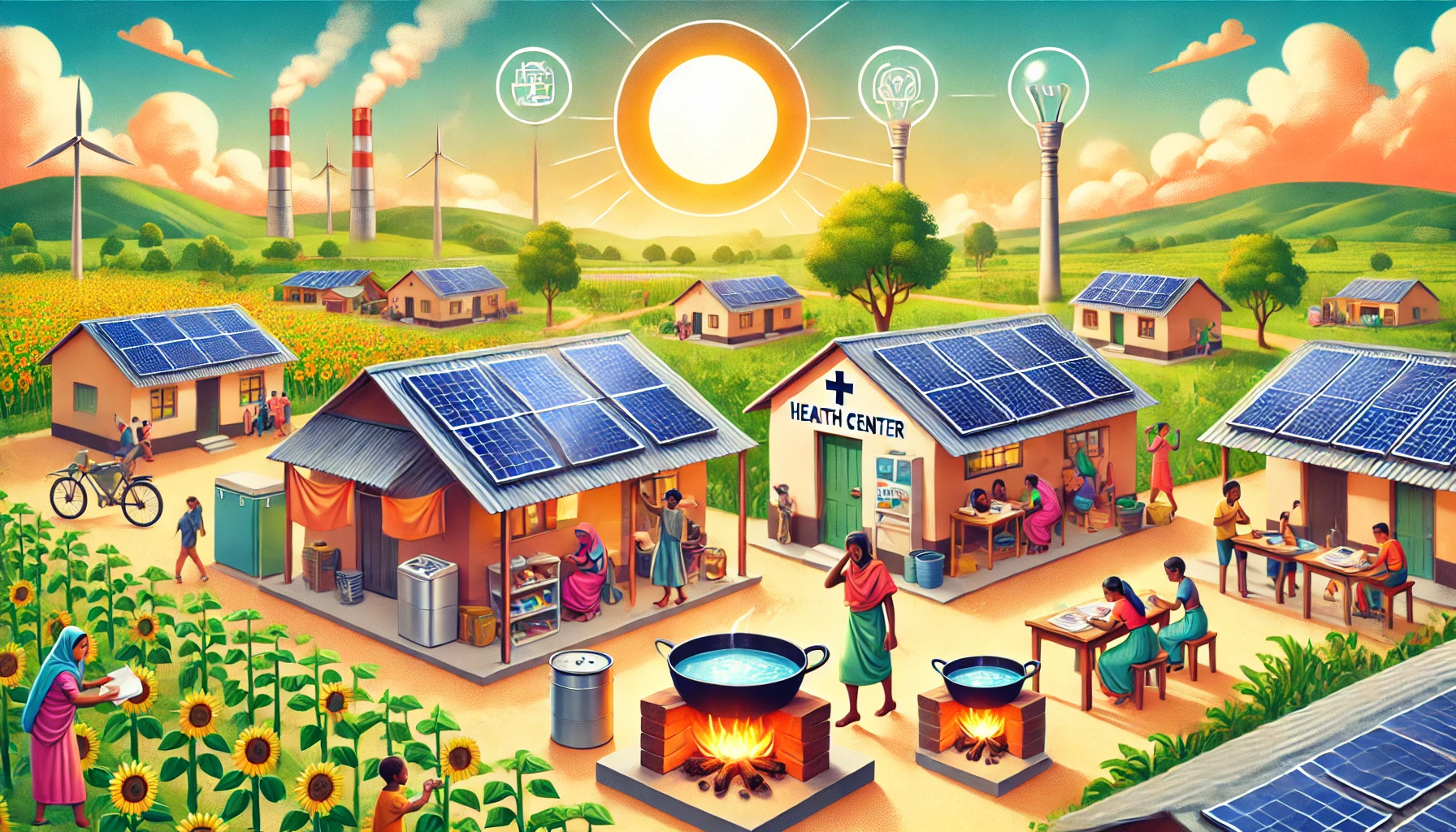AfDB Approves $282M for Power Link to Tanzania’s Islands, Boosting Access
The five-year project is expected to triple the installed power capacity on Unguja, Pemba, and Mafia Islands, increasing available energy from the current 143 megawatts (MW) to 440 MW.

- Country:
- Tanzania
The African Development Bank Group (AfDB) has approved a major $282.07 million investment to boost electricity access and clean energy adoption in Tanzania’s Zanzibar and Mafia Islands, marking a significant step toward achieving the country's electrification and clean cooking goals under the Mission 300 initiative. This landmark project involves the installation of high and medium-voltage submarine power cables, significantly enhancing energy reliability and transforming the lives of hundreds of thousands of people across the islands.
The five-year project is expected to triple the installed power capacity on Unguja, Pemba, and Mafia Islands, increasing available energy from the current 143 megawatts (MW) to 440 MW. The enhanced grid capacity will support last-mile electricity connections for 465,000 people and introduce clean electric cooking appliances to an estimated 335,300 Tanzanians, helping to shift households away from traditional biomass fuels.
A Major Leap Toward Energy Equity
The investment aligns with Tanzania’s ambition to achieve 75% electricity access and 75% clean cooking adoption by 2030. Currently, only 46% of Tanzanians have access to electricity, and a staggering 90% still rely on firewood and charcoal for cooking—exposing households, particularly women and girls, to indoor air pollution, drudgery, and health risks.
“Expanding electricity access in the country will boost youth-led MSMEs across various industries, generating a multiplier effect on job creation,” said Patricia Laverley, AfDB Country Manager for Tanzania. “The adoption of clean cooking solutions will significantly improve the quality of life for women and girls at home by promoting alternative fuels and efficient clean cooking technologies.”
The use of electricity for cooking has been historically limited by unreliable power supply and high upfront costs of appliances. By combining grid infrastructure with direct support for appliance distribution, the project aims to change that paradigm.
Infrastructure Backbone for Zanzibar and Mafia Islands
The centerpiece of the project is the deployment of submarine power cables, which will form a resilient transmission backbone to connect the islands to Tanzania’s mainland grid. This will:
-
Ensure stable, affordable electricity supply to remote regions
-
Reduce reliance on costly diesel generators and imports
-
Strengthen the region’s renewable energy potential
For Zanzibar, the project is particularly vital. The archipelago's tourism sector, which accounts for 30% of its GDP, has long been constrained by inconsistent power supply. Reliable electricity will bolster hotels, resorts, transport services, and digital businesses, creating a more attractive and stable environment for investment.
Empowering Communities and Creating Jobs
The rollout will create employment opportunities during both the construction and operational phases, targeting women and youth in particular. The electrification effort is expected to catalyze entrepreneurship in:
-
Retail and hospitality
-
Transportation and logistics
-
Light manufacturing
-
Digital and information services
-
Personal care and small-scale services
It will also expand access to online education, healthcare technologies, and financial services, especially for underserved island communities.
Clean Cooking: A Gender-Inclusive Solution
Electric cooking initiatives under the project will address both climate and gender dimensions. Women, who are disproportionately affected by the burden of collecting firewood and the health hazards of traditional stoves, will benefit from efficient, cleaner alternatives. Electric stoves and induction cookers will be provided to tens of thousands of households, reducing time poverty, indoor pollution, and exposure to gender-based violence during firewood collection.
A Pillar of Mission 300
The initiative is a cornerstone of Mission 300, a joint program of the African Development Bank and the World Bank that aims to connect 300 million Africans to electricity by 2030. With fewer than six years remaining, the Tanzania project exemplifies how strategic public financing can help de-risk infrastructure, attract private capital, and accelerate energy access in remote and off-grid areas.
The project is also aligned with the AfDB’s Ten-Year Strategy (2024–2033), and contributes directly to the Bank’s High 5s, especially Light Up and Power Africa, Industrialize Africa, and Improve the Quality of Life for the People of Africa.
Looking Ahead
As Africa works to achieve its Sustainable Development Goal 7 commitments—ensuring access to affordable, reliable, sustainable, and modern energy for all—the AfDB's investment in Tanzania’s islands represents a scalable and replicable model. With combined impacts on energy security, gender equality, economic growth, and climate resilience, the initiative is poised to become a blueprint for electrification and clean energy transition across the continent.
ALSO READ
UAE Champions Women Empowerment and Gender Equality at UN Forum
UN Women and EESC Seal Global Pact to Advance Gender Equality at HLPF 2025
NZ Backs Fiji with $7.2M for Climate Resilience and HIV Response
World Bank Backs Green Urban Growth in CAR With $9.2M Climate Resilience Grant
India and UK Pave New Path with Trade and Gender Equality Chapter










